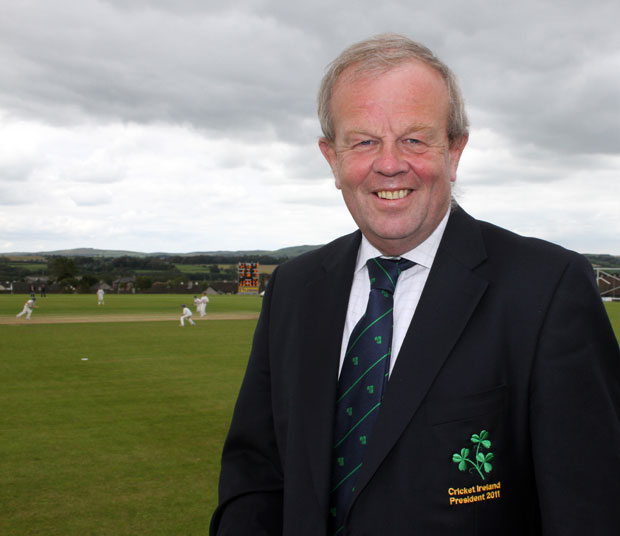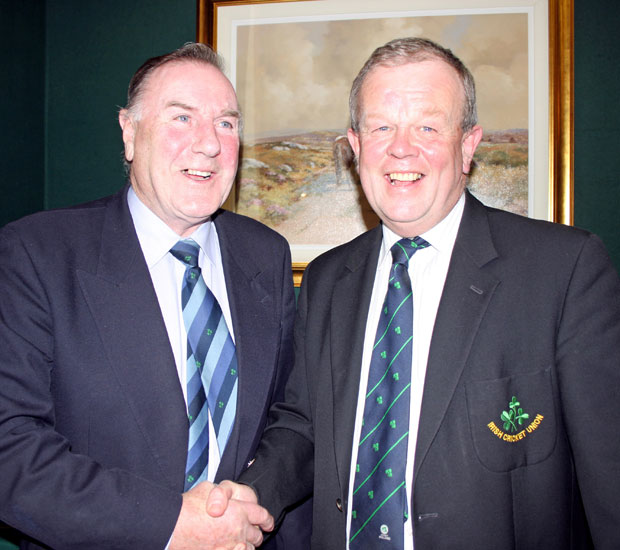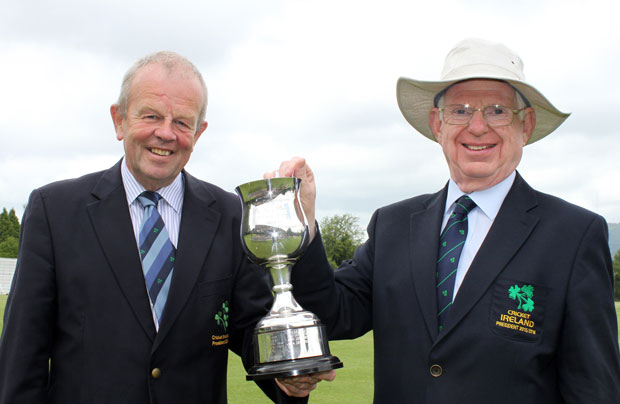The remarkable thing about Richard Johnson's life beyond the boundary is not simply to be found in the number of vital roles he has played - and continues to play - at all levels of cricket on both sides of that other boundary.
His inexhaustible contribution chairing countless committees and donning presidential blazers has been achieved while holding down a seriously demanding job in the world of finance: how he has met both professional and voluntary demands never ceases to amaze. It's called burning the midnight oil.

Richard's life has revolved around meetings given that he's also a trustee of Linfield Football Club and chairman of the NI Sports Forum which holds an umbrella over voluntary sports organisations.
He's been known to have three or four meetings a day yet always on time and always prepared, down to the fine print. This for a man who never wears a watch or keeps a diary.
And what distinction - and change- many of these meetings have brought at provincial and national level.
Turn the clock back to 2005 when Ireland hosted its biggest ever tournament with 12 countries playing for five places in the ICC 2007 World Cup in the West Indies.

The NCU hosted the majority of the 42 games involving at least one game at 13 different grounds. Richard chaired the organising committee in the north and Alan Hughes in the south.
The complex arrangements were as clockwork: the ICC were best pleased and, as future developments were to prove, a lasting legacy was left including the hosting of the World T20 qualifier three years later.
The ICC's top man at the tournament was certainly impressed: one Warren Deutrom.
Richard's organisational skills have been indispensable to countless marquee fixtures down the years in the NCU area, particularly those involving Australia and England.
Take Stormont in the summer of 2006 and what was then billed as the biggest game in the history of Irish cricket. It was just a year after England's unforgettable Ashes victory and it was to be Ireland's first official ODI.

The chairman, the late Billy Boyd, and moneyman Richard Johnson were the driving forces of what was to be Ireland's first venture into an all ticket affair for allocated seats.
The main ticket office was the Johnson household in Belfast. The ICU were promised a profit of £100,000 and that's what they got with 7,000 supporters sitting in the June sunshine and live television cameras following every move.
But it's been cricket in his home territory of the NCU that's been the main beneficiary of Johnson economics. Thanks to him, Ulster Bank were generous sponsors of the senior league and cup, succeeded currently by Robinson Services and the insurance company Gallagher.
But the North West Union has benefitted as well, dating back to the days of the Northern Ireland Cricket Association which sought a closer relationship between the two northern unions.
Richard's homework - and contacts - ensured a grant from the Sports Council which provided artificial pitches for 40 clubs and gave birth to the old ClubTurf Cup between clubs from the two unions.

Richard has been President of Cricket Ireland whose Board he sat on for 20 years and as a former chairman of the NCU has notched up 30 years on its governing body.
Not surprisingly, such service has brought a string of awards, not just locally but internationally. Pride of place must surely go the ICC's accolade back in 2006 when Richard became the volunteer of the year for the council's European region.
And still it goes on.
He is the current NCU President and if COVID-19 ever allows play, he will don the umpire's coat to uphold the spirit of cricket in his gentlemanly and unassuming way.
And if that's not enough his other sporting passion has come calling: he's just become honorary treasurer of Malone Golf Club.
More meetings …
